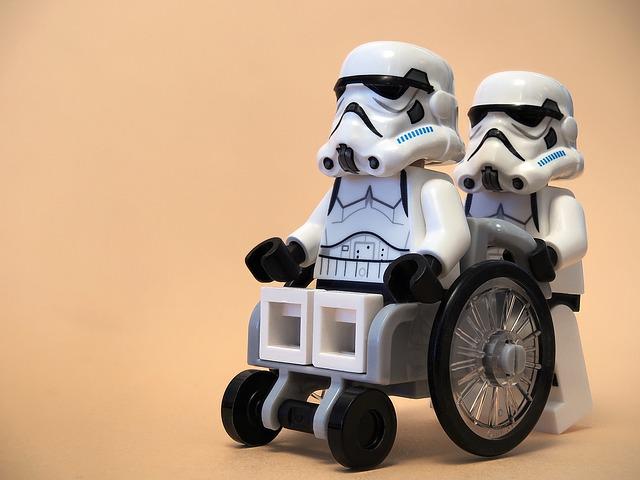
You might be curious about how to check your provider’s license if you have not yet received a dhs 6638 MHCP license. To be able to provide MHCP services in your own state, you must have all the necessary licenses. These tips will help you determine if a MHCP provider can obtain a dhs 6638.
MHCP provider's dhs 6638
MHCP providers have to be aware of their rights as well as their responsibilities under the Affordable Care Act. To comply, providers must follow the prescribed procedures and provide any information required under the program. They may be denied federal funds access if their compliance is not met.

An MHCP provider must follow the federal provider screening regulations. This includes compliance with the DHS-6638. They must submit a DHS 6638 and a background report for the owner, as well as any managers, if they are not licensed. The provider must wait for the Department of Human Services before they can license them.
MHCP Provider's dhs 245D "HCBS Warrior" license
To provide Medicaid-covered home care services, you will need a MHCP provider’s dhS245D waiver. These licenses are required for Medicaid and are required by Department of Health and Human Services. Here are some steps to help you apply if this is something that interests you.
Start by checking the provider’s license status. If your provider is unlicensed, you need to submit DHS-3891 Request for Licensing Agency Identification Number (DHS-3891) along with a background check for all owners and managers. After that, you'll need to wait for the Department of Human Services to license your service.
Before you are able to bill a client, a license must be obtained from the DHS. The license will allow you to bill Medicaid for your services. Important to note that Medicaid will pay your license holder in your DBA name. Make sure your DBA is registered with Office of Minnesota Secretary. You could be sent a rejection notice or a request to provide more information.

Minnesota offers a waiver program that allows you to apply for Consumer Directed Community Supports (CDCS). This waiver program offers funding to assist people with disabilities in managing their health care. The program is administered by DHS's Aging and Adult Services Division.
FAQ
Who is responsible to ensure public health?
Public health is an issue that affects all levels of government. Local governments manage roads, schools and parks as well as recreation facilities. The laws and regulations governing food safety, workplace safety as well as consumer protection are enacted by both the national and state governments.
What are the primary goals of a health care system?
The three most important goals of any healthcare system should be to provide affordable healthcare for patients, improve outcomes, and decrease costs.
These goals have been made into a framework called Triple Aim. It is based in part on Institute of Healthcare Improvement's (IHI) research. IHI published the following in 2008.
This framework is based on the idea that if all three goals are viewed together, each goal can be improved without compromising another.
They don't compete against each other. They support one another.
In other words, people who have less access to healthcare are more likely to die as a result of being unable or unwilling to pay. This lowers the overall cost for care.
The first goal of providing affordable healthcare for patients is achieved by improving the quality care. And it improves outcomes.
What is the difference in public and private health?
Both terms refer to decisions made by policymakers and legislators to affect the delivery of health services. The decision to build a hospital can be made locally, nationally, or regionally. Similarly, the decision about whether to require employers to offer health insurance may be made by local, regional or national officials.
What's the difference between the healthcare system and health care services, exactly?
Health systems can be more than just providing healthcare services. They encompass everything that happens in the overall context of people’s lives, such as education, employment, housing, and social security.
Healthcare services, however, are focused on providing medical treatment for specific conditions, such as diabetes or cancer.
They can also refer to the provision generalist primary healthcare services by community-based doctors working under the direction and supervision of an NHS hospital trust.
What are the various types of insurance for health?
There are three main types of health insurance:
-
Private health insurance covers most costs associated with your medical care. This type of insurance is typically purchased directly through private companies so that you only pay monthly premiums.
-
Public health insurance covers most of the cost of medical care, but there are limits and restrictions on coverage. For example, public insurance will only cover routine visits to doctors, hospitals, labs, X-ray facilities, dental offices, prescription drugs, and certain preventive procedures.
-
Medical savings accounts (MSA) are used to save money for future medical expenses. The funds are kept in a separate account. Many employers offer MSA programs. These accounts do not have to be taxed and can earn interest at the same rate as bank savings.
Statistics
- The healthcare sector is one of the largest and most complex in the U.S. economy, accounting for 18% of gross domestic product (GDP) in 2020.1 (investopedia.com)
- Price Increases, Aging Push Sector To 20 Percent Of Economy". (en.wikipedia.org)
- Over the first twenty-five years of this transformation, government contributions to healthcare expenditures have dropped from 36% to 15%, with the burden of managing this decrease falling largely on patients. (en.wikipedia.org)
- Consuming over 10 percent of [3] (en.wikipedia.org)
- The health share of the Gross domestic product (GDP) is expected to continue its upward trend, reaching 19.9 percent of GDP by 2025. (en.wikipedia.org)
External Links
How To
What are the four Health Systems?
The healthcare system is a complex network of organizations such as hospitals, clinics, pharmaceutical companies, insurance providers, government agencies, public health officials, and many others.
This project had the overall goal to create an infographic to explain the US's health care system to anyone who wanted it.
These are some of the most important points.
-
The annual healthcare expenditure is $2 trillion. This represents 17% the GDP. It's nearly twice the size as the entire defense budget.
-
In 2015, medical inflation reached 6.6%, which is higher than any other consumer category.
-
Americans spend on average 9% of their income for health care.
-
As of 2014 there were more than 300,000,000 Americans who weren't insured.
-
Although the Affordable Health Care Act (ACA), has been approved by Congress, it hasn't yet been fully implemented. There are still large gaps in coverage.
-
A majority believe that the ACA must be improved.
-
The US spends more than any other nation on healthcare.
-
The total cost of healthcare would drop by $2.8 trillion annually if every American had affordable access.
-
Medicare, Medicaid, private insurers and other insurance policies cover 56%.
-
There are three main reasons people don't get insurance: not being able or able to pay it ($25 billion), not having the time ($16.4 billion) and not knowing about it ($14.7 trillion).
-
There are two types, HMO (health maintenance organization), and PPO (preferred providers organization).
-
Private insurance covers almost all services, including prescriptions and physical therapy.
-
The public programs cover outpatient surgery as well as hospitalizations, nursing homes, long term care, hospice, and preventive health care.
-
Medicare is a federal program that provides health coverage to senior citizens. It pays for hospital stays, skilled nursing facility stays, and home health visits.
-
Medicaid is a joint federal-state program that provides financial assistance for low-income individuals or families who earn too little to qualify for other benefits.